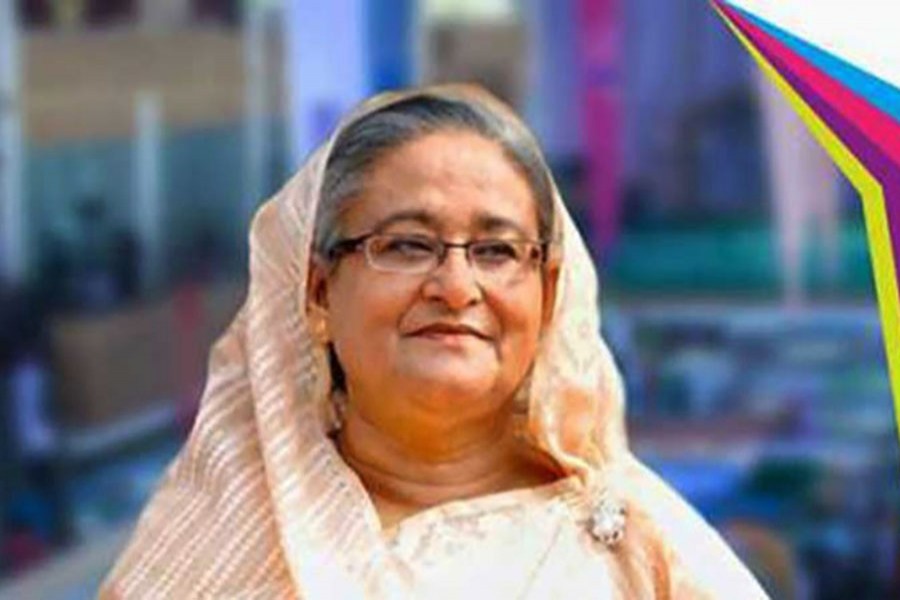Bangladesh’s recovery from the COVID-19 pandemic was successful because the government acted quickly to protect the country’s most vulnerable people and businesses, says Prime Minister Sheikh Hasina.
Because of this focus, the country is emerging from the pandemic in a better position than other countries and is poised to resume its economic resurgence, she wrote in an opinion piece for the Fortune magazine on Wednesday, reports bdnews24.com.
“Our approach to fighting COVID-19 was to balance lives and livelihoods, focusing on the needs of people first and then assisting the businesses that employed them,” she wrote.
The government provided cash and other forms of relief to the ultra-poor, the disabled, senior citizens, migrants and impoverished women at the start of the pandemic through several stimulus programmes that totalled $22.1 billion – or nearly 6.2 per cent of national GDP.
This assistance reached 40 million people or a quarter of the country’s population. Billions more were spent on vaccines and other emergency measures, the prime minister added.
The government provided rice, baby food and cash to 16.8 million families through the ‘No One Will Go Hungry’ policy and targeted payments to the aged, the disabled and destitute women, Hasina said. The government also expanded an existing programme to build houses for the homeless amid the pandemic.
These efforts significantly bolstered Bangladesh’s fight against the disease, she said.
Hasina said that small business was shored up by offers of low-interest loans, while favourable government loans were used to pay workers in the battered tourism and hospitality industries.
Larger businesses, such as the export-oriented garment sector, received multi-billion-dollar payments while a working-capital loan facility was made available to keep manufacturers and service firms in operation, she said. Interest payments on these loans were split by the government and interest payments on all commercial loans were suspended for two months in 2020 and spread out over the next year to ease the burden.
The prime minister noted the various health measures – such as mandated face coverings and a 66-day public holiday from late March to early June of 2020 – that helped tamp down on the spread of the coronavirus.
Despite the toll on production, small and medium-sized businesses and demand, Hasina said she believed such steps were necessary.
“We never lost faith in ourselves and continued to invest in our people. We set up testing facilities. We did contact tracing. We installed isolation facilities in hospitals across the country. We also recruited 6,200 doctors, 10,000 nurses, and 3,000 other key medical personnel. In the end, thanks in part to years of investments at the local level, our healthcare system was resilient despite the terrible strain,” she wrote.
Due to these initiatives, it was possible for the country to save lives, while also allowing the economy to weather the beating of the pandemic, Hasina said.
The prime minister mentioned that GDP growth had risen by roughly 2 percentage points since last November, making Bangladesh one of the five fastest-growing economies in the world.
The past decade has seen remarkable leaps for Bangladesh – reducing the poverty rate from 31.5 per cent to 20.5 per cent, trebling per capita income, and taking foreign currency reserves to an all-time high - and the pandemic has not been able to disrupt it, she said.
This was possible because Bangladesh has invested in its people, Hasina said, adding: “People continue to be at the heart of everything we do, whatever the omicron variant brings.”
Now Bangladesh is on track to graduate from the United Nations’ list of least developed countries by 2026, she said. “All of this is still possible despite the worst pandemic in a hundred years. Investing in people made all the difference.”


